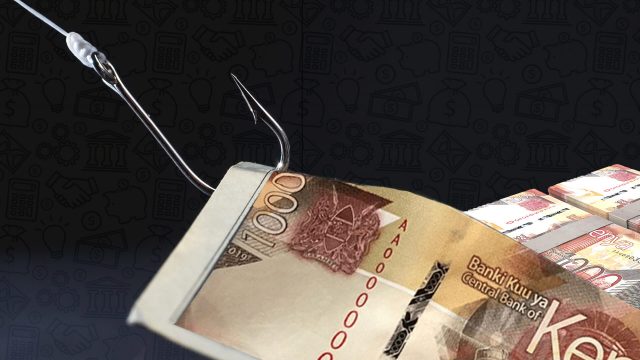Tips to avoid falling for the latest ‘wash wash’ scam in town
The money laundering business is a practice that is almost as old as time itself and money launderers are always looking for ways to remain undetected, but there are red flags that one can look out for to avoid getting caught up in these illegal ventures.

Every year, Kenyans fall victim to fraudsters and con artists through unregulated investment products that promise quick returns.
These money laundering businesses – that lure desperate Kenyans who want to make money – are especially rife in Nairobi and involve gold and fake money commonly known as “wash wash”.
The term “wash wash” refers to a trick that con artists use to get money from their victims by convincing them that fake bank sized notes are real currency, only that they have been stained by a dye. The victims are convinced to buy chemicals to remove the dye and are promised a cut of the clean money.
Often, this money is channeled through the banking system in order to appear as if it if from a legitimate business, mostly through cash-based service industries such as car yards, salons, or bars and restaurants.
According to the United States Treasury Department, money laundering is the process of making illegally-gained proceeds appear legal.
The money laundering business is a practice that is almost as old as time itself and money launderers are always looking for ways to remain undetected, but there are red flags that one can look out for to avoid getting caught up in these illegal ventures.
Is there foot traffic?
Mr. Ken Gichinga, chief economist at Mentoria Economics says “a normal business has its costs and revenues. The profit comes when you subtract costs from revenues. When there is no foot traffic yet a business is there year in year out, sometimes that raises questions with the authorities.”
He adds that large scale money laundering might have some inflationary components if it extends extensively across the economy.
Be patient with your business
“Let your business develop normally and organically. Do not be lured by some of these shortcuts, because they can cost you your freedom, you can go to jail and they can cost you your reputation as well,” Mr Gichinga says.
Here are more rules of thumb you can use to avoid falling into the trap in future;
Consult with a professional
Majority of the victims lodge reports after they have been ripped off. It is important to know that con artists choose their prey carefully and target individuals who are secluded and gullible. If someone tries to interest you with a quick money-making venture, tell them you have to check in with someone like a credible lawyer for a discussion before you give them feedback and then actually do it.
Trust, but verify
If someone is telling you the truth about something, you should be able to verify it. Do not invest your time and money in places you have no trust in. If you cannot, then the basis of trust is lost.
Have it in writing
Verbal promises do not count. Most contracts specifically state that verbal promises are not binding. It only matters if it is written down. Chances of a con backing out from partnering with you are high when you bring up contract/agreements.
Do your research
Research more on the business venture before you actually commit to it. Taking your time doing that will open your eyes to loop holes and baits you might have missed.
Protect your personal information
This includes but is not limited to identification cards, credit cards, bank account numbers, passport number, etc. These are all things that people can use to their advantage to carry out identity theft.
Keep off unreasonable bargains
When something sounds too good to be true, it probably is. This is an appeal to our self interest and greed. Embrace restraint.
Avoid shortcuts
Anything that promises you a quick and easy path to affluence or prestige screams red flags. If the path was that easy, everyone would be wealthy, right? Right.
Think like a con
Before you make the decision to indulge, try and think like a con. Cons want to make you trust them. They’ll do something to appear like they trust you. This is because they know that we are inclined to trust someone who has first demonstrated that they trust us. Do not fall for it.
Know what the rules are
Every ‘game’ has a set of rules.If the terms sound odd and illogical, ask questions before acting on the demands. If they aren’t logical, run. Know the patterns that have happened in the past and their results.
